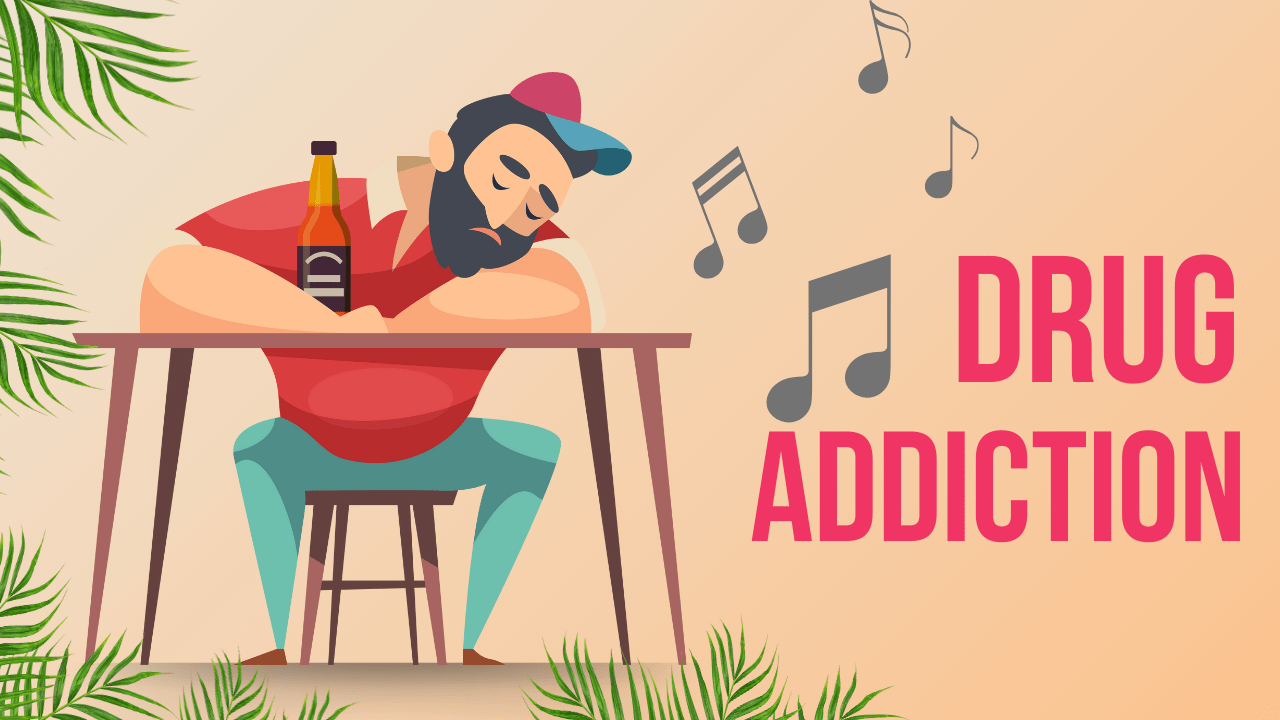The music industry is often seen as a world of glamour and fame. However, behind the scenes, there’s a darker reality that has affected many artists—drug addiction. This issue has caused tragic outcomes and has left a significant mark on the industry. In this blog, we will explore the causes, effects, and actions being taken to address drug addiction in the music industry. Our goal is to bring attention to this issue and discuss ways to create a healthier environment for artists.
A Brief History of Drug Use in Music
The history of drug addiction in the music industry is extensive. It dates back to the jazz era of the 1920s. During this time, musicians often used substances like alcohol and opiates. This trend continued into the 1960s with the rise of rock and roll. The culture of the 60s promoted drug use, with artists like Jimi Hendrix and Janis Joplin becoming famous for their music and their drug habits.
The 1970s and 80s brought new genres like punk rock and heavy metal. These scenes also had a strong association with drug use. In the 1990s and 2000s, hip-hop artists often rapped about their experiences with drugs. This history shows that drug use has been a constant issue in the industry. It has affected artists across all genres and eras.
Why Do Musicians Turn to Drugs?
Drug addiction in the music industry has many causes. The lifestyle of a musician often includes long hours, constant travel, and exposure to parties. This can lead to substance abuse. Here are some common reasons why musicians might start using drugs:
Pressure and Stress
Musicians face a lot of pressure. They need to produce hits, maintain a public image, and perform live. This can be very stressful. Drugs might seem like a quick way to relax or escape from the pressure.
Seeking Creativity
Many artists believe that drugs help them be more creative. This idea has been popularized by stories of famous musicians who used drugs while writing songs. However, this is a dangerous misconception. Drugs can impair judgment and lead to poor decisions.
Influence of Peers
The music industry has a culture of drug use. New artists may feel pressured to fit in by using drugs. They might see their idols doing it and think it is normal. This can lead to dangerous habits.
Mental Health Issues
Many musicians struggle with mental health problems. Depression, anxiety, and bipolar disorder are common. Some artists use drugs to self-medicate. They may feel that drugs help them cope with their symptoms. Unfortunately, this often makes the problems worse.
The Consequences of Drug Addiction
Drug addiction in the music industry has severe consequences. It affects artists’ health, careers, and personal lives. Let’s look at some of the major impacts:
Health Issues
Prolonged drug use can lead to serious health problems. These include damage to vital organs and mental health issues. Overdoses are a significant risk. The list of artists who have died from drug overdoses is long. Names like Amy Winehouse, Kurt Cobain, and Prince are just a few.
Career Problems
Drug addiction can ruin an artist’s career. It can lead to missed performances and a decline in the quality of work. This can damage their reputation. Promoters and record labels may not want to work with unreliable artists. This can lead to fewer opportunities and a stalled career.
Financial Struggles
Addiction is expensive. The cost of drugs, legal fees, and medical expenses can drain an artist’s finances. Some may even go bankrupt. The loss of income from missed work only adds to the financial strain.
Strained Relationships
Addiction can strain relationships with family, friends, and colleagues. Artists may push away those who care about them. This isolation can make the addiction worse. It becomes a vicious cycle that is hard to break.
Famous Cases of Drug Addiction
Many well-known artists have struggled with drug addiction. These stories highlight the issue’s widespread nature and its devastating effects.
Elvis Presley
Elvis, known as the King of Rock and Roll, struggled with prescription drug addiction. His drug use started in the late 1950s and got worse over time. It affected his health and behavior, leading to his early death at 42.
Whitney Houston
Whitney Houston had a powerful voice and a successful career. However, her struggles with drug addiction overshadowed her achievements. She battled addiction for many years, which ultimately led to her tragic death in 2012.
Eminem
Eminem is a rapper who has been open about his battle with prescription drug addiction. His addiction nearly cost him his life. However, he sought help and has been sober since 2008. His recovery story is inspiring and shows that it is possible to overcome addiction.
Layne Staley
Layne, the lead singer of Alice in Chains, battled heroin addiction. His addiction led to his death in 2002. His story is a sad reminder of the dangers of drug addiction in the music industry.
Efforts to Combat Drug Addiction
The music industry and various organizations are working to address drug addiction. Here are some ways they are helping:
Rehabilitation Programs
There are rehab programs specifically for artists. These programs offer medical and psychological support. They help artists recover and rebuild their lives.
Awareness Campaigns
Organizations like MusiCares run campaigns to raise awareness about addiction. They provide resources and support for artists in need. These campaigns aim to reduce the stigma around addiction and encourage people to seek help.
Industry Support
Some record labels and management teams are focusing on artist well-being. They offer mental health resources and support. This includes access to therapists and counselors. They also encourage a healthy lifestyle.
Peer Support Groups
Groups like Alcoholics Anonymous (AA) and Narcotics Anonymous (NA) offer support. They provide a safe space for people to share their experiences. The support from these groups can be crucial for recovery.
Legal and Policy Measures
Some places have laws to help reduce drug abuse. These include stricter regulations on prescription drugs. Policies also support easier access to treatment.
How Fans and the Public Can Help
Fans and the public can play a significant role in addressing drug addiction in the music industry. They often idolize artists and can influence the culture around them.
Promoting a Healthier Culture
Fans can support a culture that prioritizes health and well-being. They can attend sober events and support artists who speak out about their struggles. This can help change the perception of drug use in the industry.
Responsible Media Consumption
The media often sensationalizes drug use among celebrities. Fans should consume media responsibly and not glorify addiction. Supporting positive stories about recovery can help shift the narrative.
Supporting Recovery Efforts
Fans can support organizations that help artists with addiction. Donations and volunteering can make a difference. Encouraging open conversations about addiction can also help reduce stigma.
Looking Ahead: The Future of the Music Industry
The future of the music industry depends on addressing drug addiction. The industry needs to prioritize the well-being of artists. This includes providing better resources and support.
Innovations in Treatment
Advancements in technology and healthcare offer new hope. Telehealth services can provide therapy and counseling. New treatments can help those struggling with addiction.
Addressing Broader Issues
The industry must also address broader societal issues. These include income inequality and lack of access to healthcare. A comprehensive approach is needed to tackle drug addiction.
Conclusion
Drug addiction in the music industry is a complex issue. While progress has been made, there is still much work to do. By understanding the causes and effects of addiction, supporting recovery efforts, and fostering a culture of health and well-being, we can create a safer environment for artists. The music industry must continue to evolve, ensuring that the well-being of its members is a top priority. As fans, industry professionals, and fellow artists, we all have a role to play in supporting those struggling with addiction and working towards a brighter future for music.
For further reading, explore these related articles:
- Understanding Music Industry Certifications: A Guide for Aspiring Artists
- The Evolution and Future of the Digital Music Industry
For additional resources on music marketing and distribution, visit Deliver My Tune






